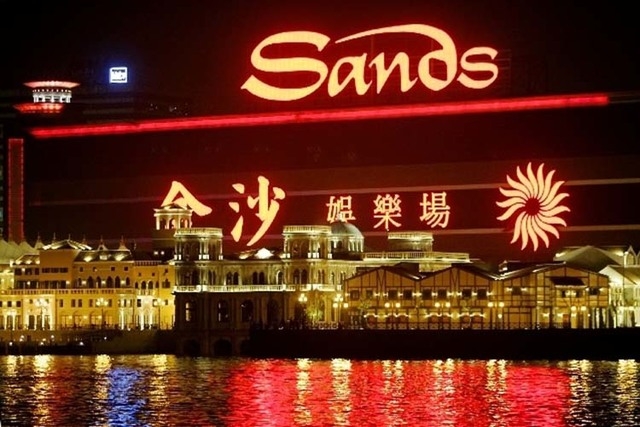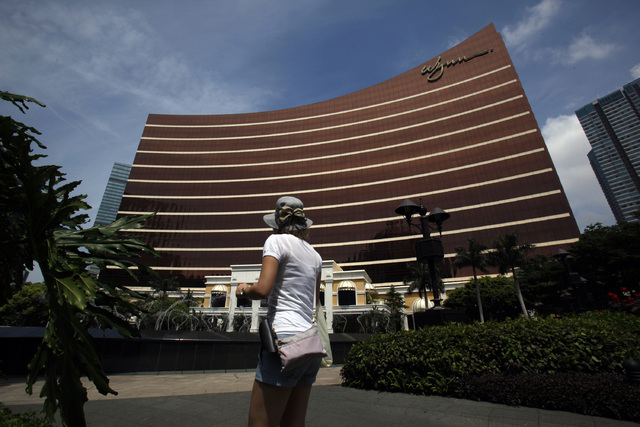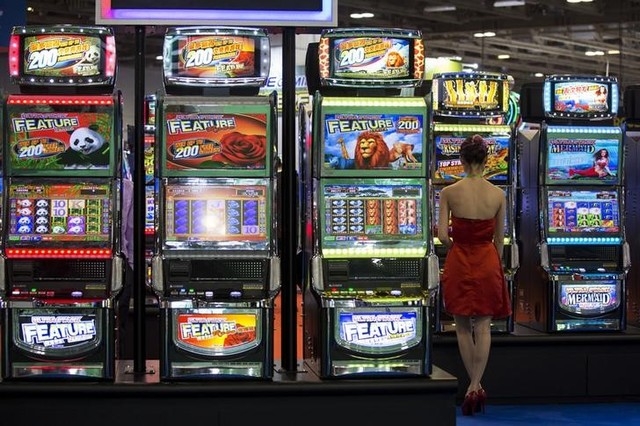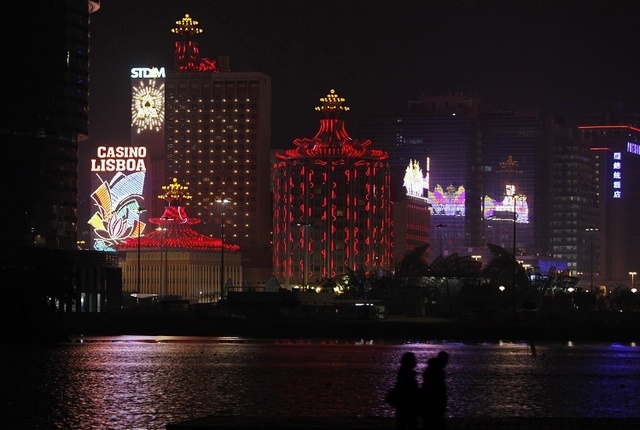Macau casinos start 2015 with another revenue dip




Macau’s casino industry began 2015 in the same way it ended 2014 — with another monthly gaming revenue decline.
And, indications are that nothing will change in the first half of the year.
Macau’s 35 casinos collected $2.97 billion from gamblers in January, the Macau Gaming Inspection and Coordination Bureau said Monday. If there was a bright spot, it was the 17.4 percent decline over January 2014 didn’t match December’s record-breaking drop.
As a comparison, the figure is less than half of the $6.37 billion the Strip collected from gamblers in all of 2014.
January’s decline was the eighth straight monthly drop. In December, gaming revenue fell 30.4 percent to $2.9 billion, Macau’s largest-ever single month decline. The last four months of 2014 saw double-digit decreases, including a 23.2 percent dip in October.
“This was inline with our expectations of an essentially flat month on a sequential basis,” said Union Gaming Group analyst Grant Govertsen told investors. “Most importantly, and supporting our recent upgrade thesis that we’ve reached a much-needed point of stabilization in the market.”
Analysts are already predicting February will mark the ninth straight monthly decline despite having the lucrative Chinese New Year holiday. Last February, Macau gaming revenue grew 40 percent because of the holiday.
“As always, Chinese New Year should be a significant catalyst, and our checks suggest bookings are lower than prior years,” said Wells Fargo Securities gaming analyst Cameron McKnight, who predicted the month could challenge December’s record decline.
Govertsen said he doesn’t expect Macau’s casino industry to recover until the second half of the year.
“This effectively gives no benefit to the traditional Chinese New Year gaming revenue bump,” Govertsen said.
In 2014, Macau collected $44.1 billion from gamblers, a decline of 2.6 percent over 2013’s record $45.2 billion. The year marked the first time revenue fell on a year-over-year basis since American companies began operating in the Chinese Special Administrative Region in 2003.
Still, Macau far outranks both Nevada and Singapore as the would’s largest gaming revenue-producing market.
Macau’s casino industry has suffered since June. A crackdown on corruption by the Chinese government has focused on junket operators who bring high-end baccarat gamblers to the casino’s ultraexclusive private gambling rooms. Several operators have been linked to Chinese organized crime triads.
The Beijing government of President Xi Jinping wants Macau to diversify its economy beyond gambling. New casinos are required to increase their nongaming amenities, such as retail, dining and entertainment.
MGM Resorts International, Las Vegas Sands Corp. and Wynn Resorts Ltd. all operate casinos in Macau and are expanding their holdings.
Las Vegas Sands and Wynn Resorts rely on Macau for the vast majority of their quarterly earnings. Both companies, as well as MGM Resorts, spun off their Macau holdings into separate publicly traded companies on the Hong Kong Stock Exchange.
The three Nevada gaming companies are moving forward with new developments on Macau’s Cotai Strip region: Las Vegas Sands’ $2.7 billion Parisian, Wynn’s $4 billion Wynn Palace and the $2.9 billion MGM Cotai.
Other Macau casino operators have Cotai projects under development, including Hong Kong-based Galaxy Entertainment’s expansion of the Galaxy resort and Melco’s Studio City complex.
Macau is the only place in China where casino gambling is legal. China ended billionaire Stanley Ho’s casino monopoly in 2001.
Contact reporter Howard Stutz at hstutz@reviewjournal.com or 702-477-3871. Find him on Twitter: @howardstutz


















